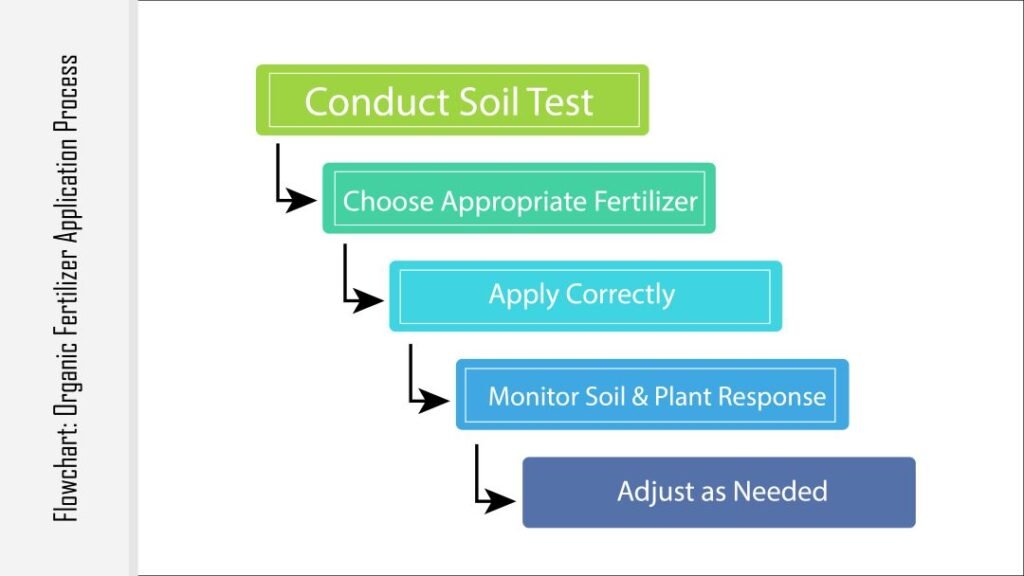
As agriculture faces increasing challenges from soil degradation, chemical pollution, and declining biodiversity, organic fertilizers have emerged as a crucial solution for sustainable farming. These fertilizers, derived from natural sources such as plant residues, animal manure, and compost, offer a holistic approach to improving soil fertility and crop yield while minimizing environmental damage. This article explores the science behind organic fertilizers, their benefits, real-world research findings, and best application practices.
What Are Organic Fertilizers?
Organic fertilizers are naturally occurring substances that provide essential nutrients to plants while improving soil structure and microbial activity. According to Brady and Weil (2016), organic fertilizers “enhance soil biological activity and improve soil physical properties, leading to sustained plant growth.”
“Materials of biological origin that improve soil fertility by supplying essential nutrients and fostering microbial life.” – FAO
Unlike synthetic fertilizers, which offer an immediate but short-lived nutrient boost, organic fertilizers ensure a slow and sustained nutrient release, promoting long-term soil health.
Why Choose Organic Fertilizers?
1. Improved Soil Structure and Health
Organic fertilizers enhance soil aggregation, aeration, and water-holding capacity, leading to stronger plant growth.
How It Works: When organic fertilizers are applied to the soil, microorganisms such as bacteria, fungi, and earthworms break down the organic matter into simpler compounds. This decomposition process releases essential nutrients, including nitrogen, phosphorus, and potassium, which become available for plant uptake. The organic matter also binds soil particles together, improving aeration and water retention, which helps roots grow deeper and absorb nutrients more efficiently.
Research Insight: A study by Soil Biology & Biochemistry (2021) found that farms using compost and manure experienced a 35% improvement in soil porosity and 50% increase in organic carbon levels over a five-year period.
2. Slow and Sustainable Nutrient Release
Unlike synthetic fertilizers that lead to nutrient leaching and soil depletion, organic fertilizers provide a steady nutrient supply, reducing runoff and increasing plant uptake efficiency.
How It Works: Organic fertilizers decompose gradually, allowing beneficial soil microbes to convert organic matter into plant-available nutrients. This process ensures a steady nutrient flow over time, preventing sudden surges or deficiencies. Additionally, organic compounds improve soil cation exchange capacity (CEC), enhancing nutrient retention and minimizing losses through leaching, ultimately leading to healthier plant growth and sustained soil fertility.
Research Insight: Research from the Journal of Agricultural Science (2022) showed that farms using organic fertilizers had 30% higher nitrogen retention compared to those using synthetic fertilizers.
3. Supports Soil Microbial Life
Healthy soil is rich in beneficial microbes that break down organic matter into plant-available nutrients. Organic fertilizers foster microbial diversity, leading to stronger root systems and disease resistance.
How It Works: Organic fertilizers provide a food source for beneficial soil microbes, stimulating their activity and reproduction. As these microbes digest organic matter, they release enzymes that break down complex compounds into simpler, plant-available nutrients. This process enhances root growth, improves nutrient absorption, and strengthens plant immunity against diseases and pests.
Research Insight: Studies have revealed that organic farming systems have up to 25% higher microbial diversity than conventional farming methods (Nature Sustainability, 2021).
4. Environmentally Friendly and Climate Resilient
Using organic fertilizers reduces greenhouse gas emissions, prevents water pollution, and lowers dependence on fossil-fuel-derived inputs.
How It Works: Organic fertilizers improve soil carbon sequestration by increasing organic matter content, which enhances soil’s ability to capture and store carbon dioxide. Additionally, they reduce the need for energy-intensive synthetic fertilizers, lowering overall greenhouse gas emissions. By promoting healthy microbial activity and reducing chemical runoff, organic fertilizers help maintain cleaner waterways and prevent soil degradation, making them a sustainable choice for long-term agricultural productivity.
Research Insight: The Food and Agriculture Organization (FAO) reported that organic farms produce 60% lower nitrous oxide emissions compared to chemically fertilized fields.
5. Better Crop Yield, Taste, and Nutrition
Organic fertilizers contribute to improved crop resilience, flavor, and nutritional value. Organically grown fruits and vegetables often have higher antioxidant levels and better flavor profiles than conventionally grown produce.
How It Works & Scientific Insight: Organic fertilizers enhance soil microbial activity, leading to better nutrient absorption and stronger plant metabolism. The slow release of nutrients prevents excessive nitrogen accumulation, which can dilute flavors and reduce antioxidant levels in conventionally grown crops.
Research Insight: According to a study published in Frontiers in Plant Science (2021), organically grown tomatoes exhibited 20-30% higher polyphenol content, contributing to improved taste and health benefits. The presence of beneficial microbes also stimulates the production of secondary metabolites, which enhance the natural defense mechanisms of plants, leading to better resilience and higher nutritional quality.
Types of Organic Fertilizers
Organic fertilizers come in various forms, each with unique benefits. Here’s a breakdown:
| Type | Source | Key Nutrients | Benefits |
| Compost | Decomposed organic matter | N, P, K, Micronutrients | Improves soil structure, retains moisture |
| Manure | Animal waste | N, P, K | Rich in nutrients, enhances microbial life |
| Bone Meal | Animal bones | Phosphorus, Calcium | Promotes root growth and flowering |
| Fish Emulsion | Fish byproducts | Nitrogen, Trace minerals | Quick nutrient release, boosts foliage |
| Seaweed Fertilizer | Seaweed extract | Potassium, Micronutrients | Enhances stress tolerance, improves yield |
| Green Manure | Cover crops (e.g., clover) | N, P, K | Prevents soil erosion, fixes nitrogen |

How to Use Organic Fertilizers Effectively
Step 1: Assess Soil Nutrients
Conduct a soil test to determine existing nutrient levels and deficiencies.
Step 2: Select the Right Fertilizer
Choose an organic fertilizer based on crop type, soil needs, and desired nutrient balance.
- For Nitrogen Boost: Use manure, blood meal, or legume cover crops.
- For Phosphorus Enrichment: Apply bone meal or rock phosphate.
- For Potassium Supply: Incorporate greensand or seaweed extracts.
Step 3: Proper Application Methods
- Compost & Manure: Work into the soil before planting.
- Liquid Fertilizers: Use foliar spray or root drench for quick absorption.
- Mulching: Apply organic mulch to retain moisture and suppress weeds.
Step 4: Monitor and Adjust
Regularly assess soil conditions and plant health to fine-tune fertilizer application.
Flowchart: Organic Fertilizer Application Process

Organic vs. Synthetic Fertilizers: A Comparative Analysis
| Parameter | Organic Fertilizers | Synthetic Fertilizers |
| Nutrient Release | Slow, long-term | Fast, short-lived |
| Soil Health | Enhances microbial activity, structure, and moisture retention | Depletes organic matter, leads to compaction |
| Environmental Impact | Sustainable, reduces pollution | High risk of leaching, water pollution |
| Cost-effectiveness | Higher initial investment, long-term benefits | Lower upfront cost, but causes soil degradation over time |
| Crop Quality | Higher taste and nutritional value | Often high yield but lower quality |
Organic fertilizers are a powerful tool for sustainable agriculture, ensuring soil fertility, environmental health, and superior crop quality. While their effects take time to manifest, their long-term advantages far outweigh the short-term convenience of synthetic fertilizers. By adopting organic fertilization practices, farmers and gardeners can contribute to a resilient, eco-friendly agricultural system that supports biodiversity and food security.
Want to compare organic and chemical options side by side? Read our in-depth guide on Organic Fertilizer vs Chemical Fertilizer: What Works Better for Your Garden in 2025?